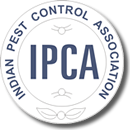Pest Management is an integrated approach to tackling a pest problem, which includes control (either physical or chemical) and prevention. The professional pest manager needs knowledge and skills, along with the latest products and equipment, in order to provide effective solutions to customers. Knowledge of local and international Regulatory, Hygiene & Safety Standards and conforming to these, forms an integral part of every pest manager’s responsibility.
Pesticide Regulations in India
The Insecticides Act, 1968 and Insecticides Rules, 1971 regulate the import, registration process, manufacture, sale, transport, distribution and use of insecticides (pesticides) with a view to prevent risk to human beings or animals and for all connected matters, throughout India. All insecticides (pesticides) have to necessarily undergo the registration process with the Central Insecticides Board & Registration Committee (CIB & RC) before they can be made available for use or sale.
Thus, technically all insecticides (pesticides) in India are those substances that are listed on the “Schedule” of the Insecticides Act, 1968. The Registration Certificate mandates that a label be put on the packaging, which clearly indicates the nature of the insecticide (Agricultural or Household use), composition, active ingredient, target pest(s), recommended dosage, caution sign and safety precautions. Therefore, a pesticide labeled for agriculture should not be used in a household.
Banned Pesticides in India: The CIB & RC scrutinizes and periodically reviews all pesticides and their usage – some are banned from registration itself. Sometimes a pesticide can be banned even after registration when it causes serious environmental and public health concerns. Some pesticides are meant for “Restricted Use” which means that they can be used only for prescribed purposes and by authorised personnel by obtaining the appropriate Government license. The entire list can be viewed at: List of Banned Pesticides in India.


